THE FUTURE OF COHOUSING COMMUNITIES WITH PARE GEROU | E038 PODCAST
LISTEN TO THIS EPISODE
ABOUT THE GUEST
Pare Gerou is a Greek American attorney with a profound commitment to community empowerment and social justice. Growing up within the vibrant Greek-American culture, Pare developed a deep affinity for both her ancestral homeland of Greece and the principles of cohousing from an early age.
During the tumultuous period of the pandemic, Pare, like countless others, took a reflective pause to consider how she could align her passions with her aspirations for a more fulfilling life. Drawing from her background in law, particularly specializing in immigration and refugee representation, as well as her personal engagement in cohousing communities, Pare embarked on a transformative journey.
Motivated by her vision to harmonize her dual passions, Pare took the bold step of founding the inaugural cohousing group in Greece. This diverse, multigenerational community brings together individuals from various walks of life, both local residents and international enthusiasts, united by a shared commitment to fostering a vibrant, inclusive, and sustainable living environment.
Pare’s Website: https://www.greekvillagecohousing.com/
Pare’s Facebook: https://www.facebook.com/pare.gerou.3/
Pare’s LinkedIn: https://www.linkedin.com/in/paregerou/
George Stroumboulis sits down with Pare Gerou in Athens, Greece on the Invigorate Your Business Podcast to talk about all things cohousing, community building, hotels, investment in Greece, refugees and so much more.
“Cohousing can be called a design movement. It’s not a development, it’s really a movement... at heart it’s about village, but it’s different than a Greek village. I’ve lived in one and I loved living in that Greek village, but it’s not the same as living in cohousing.
”
MEDIA RELATED TO THE EPISODE
George Stroumboulis sits down with Pare Gerou in Athens, Greece on the Invigorate Your Business Podcast to talk about all things cohousing, community building, hotels, investment in Greece, refugees and so much more.
George Stroumboulis sits down with Pare Gerou in Athens, Greece on the Invigorate Your Business Podcast to talk about all things cohousing, community building, hotels, investment in Greece, refugees and so much more.
George Stroumboulis sits down with Pare Gerou in Athens, Greece on the Invigorate Your Business Podcast to talk about all things cohousing, community building, hotels, investment in Greece, refugees and so much more.
Filming this podcast episode in the heart of Athens Greece with Pare Gerou, Ambassador Bob Peck, Maria Pantazi Peck and George Stroumboulis.
George Stroumboulis sits down with Pare Gerou in Athens, Greece on the Invigorate Your Business Podcast to talk about all things cohousing, community building, hotels, investment in Greece, refugees and so much more.
Filming this podcast episode in the heart of Athens Greece with Pare Gerou, Ambassador Bob Peck, Maria Pantazi Peck and George Stroumboulis.
George Stroumboulis sits down with Pare Gerou in Athens, Greece on the Invigorate Your Business Podcast to talk about all things cohousing, community building, hotels, investment in Greece, refugees and so much more.
George Stroumboulis sits down with Pare Gerou in Athens, Greece on the Invigorate Your Business Podcast to talk about all things cohousing, community building, hotels, investment in Greece, refugees and so much more.
ABOUT THE “INVIGORATE YOUR BUSINESS” PODCAST
The Invigorate Your Business with George Stroumboulis podcast features casual conversations and personal interviews with business leaders in their respective fields of expertise. Crossing several industry types and personal backgrounds, George sits down with inspiring people to discuss their business, how they got into that business, their path to the top of their game and the trials and tribulations experienced along the way. We want you to get inspired, motivated, and then apply any advice to your personal and professional lives. If there is at least one piece of advice that resonates with you after listening, then this podcast is a success. New episodes weekly. Stream our show on Spotify, YouTube, Apple, Amazon and all other platforms.
ABOUT GEORGE STROUMBOULIS
George Stroumboulis is an entrepreneur to the core, having launched several ventures across multiple industries and international markets. He has held senior-level positions at progressive companies and government institutions, both domestically and internationally, building an extensive portfolio of business know-how over the years and driving profit-generating results. George’s ability to drive real change has landed him in several media outlets, including the front page of the Wall Street Journal. George was born in Toronto, Canada to his Greek immigrant parents. Family first. Flying over 300,000 miles a year around the world puts into perspective how important family is to George’s mental and emotional development. With all this travel to global destinations, the longest he stays even in the most far-out destination is 3 days or less - a personal rule he lives by to make sure he is present and involved in family life with his wife and three daughters. To read about George’s global travels, stay connected with his blog section.
STAY CONNECTED WITH GEORGE STROUMBOULIS
STREAM & LISTEN TO THE PODCAST:
SPOTIFY: https://open.spotify.com/show/1rW2CmxQoiJNEPOZupJlvd
YOUTUBE: https://www.youtube.com/user/Stroumboulis
APPLE iTUNES: https://podcasts.apple.com/us/podcast/invigorate-your-business-with-george-stroumboulis/id1607693240
AMAZON MUSIC: https://music.amazon.com/podcasts/8fc03929-71b3-483a-a64e-153e30b3d462/invigorate-your-business-with-george-stroumboulis
STROUMBOULIS SITE: https://www.stroumboulis.com/podcast
PODCAST SITE: http://www.invigorateyourbusiness.com
FOLLOW GEORGE STROUMBOULIS:
INSTAGRAM: https://www.instagram.com/georgestroumboulis/
YOUTUBE: https://www.youtube.com/user/Stroumboulis
LINKEDIN: https://www.linkedin.com/in/Stroumboulis/
TWITTER: https://twitter.com/Stroumboulis
FACEBOOK: https://www.facebook.com/georgestroumboulis
TIKTOK: https://www.tiktok.com/@georgestroumboulis
CONTACT GEORGE DIRECTLY: https://www.stroumboulis.com/connect
FULL SHOW TRANSCRIPT
George Stroumboulis: 0:00
Welcome to another episode of Invigorate your Business with George Stroumboulis. This episode comes from beautiful Athens. I'm fresh off the plane and I get to sit down with Pare Gerou. She is a very intelligent woman back home in the United States, a refugee lawyer, she has been to war zones around the world working and just making a difference. She's returned to Greece, moved here during the pandemic and now she is building Greece's very first co-housing community. It's absolutely exciting. This doesn't exist here in Greece and she's spearheading that an absolute trailblazer. We're going to learn about the community she's building, people from around the world joining the property where it's located. It's a very exciting story, so make sure to tune into this episode starting now.
George Stroumboulis: 0:49
My name is George Stroumboulis and I'm extremely passionate about traveling the world, meeting new people and learning about new businesses. Join me as I sit down with other entrepreneurs to learn about their journeys. This episode of Invigorate your Business starts now. Actually, you know what we're going to jump into this right now. Okay, sitting in Athens, Greece, with Pari, and I'm very excited to talk about something I know nothing about co-housing. Just in general, I have my ideas right, misconceptions. When I hear co-housing it's, you know, hippie village, no shoes.
Pare Gerou: 1:31
No, we're not Kumbaya, right, that's right.
George Stroumboulis: 1:34
But it's a whole other world. So we're going to start and really dissect this for the listener, because I think it's important just for people to understand what you're doing. And you know Greek-American. Successful lawyer, studied at the top universities, decided to come to Greece and set up a co-housing community, the first one in Greece, which is tremendous. So please introduce yourself.
Pare Gerou: 1:56
What do you want me to say about myself?
George Stroumboulis: 1:58
Let's, you know. Let's start. Where are you from originally, you know, and how did you lead to get here to Greece and start this?
Pare Gerou: 2:06
Well, the path to this project began in the summers, when my father took me to the beautiful island of Lesvos and I spent my summers swimming in the sea and eating loukoumades and just fell in love with Greece. Fell in love with Greece and years later, as I was working in my career, which is refugee law, I happened to decide to live in a co-housing community in Michigan at the time and I fell in love with co-housing. It really just immediately, viscerally felt like a different way to live and it just became a heart space for me and although I had to leave it, it's always been something that's been present in my mind, along with Greece. And during the pandemic I decided I really wanted both of them and they didn't exist in Greece. So I decided if I wanted co-housing in Greece, I had to do it myself.
George Stroumboulis: 3:04
So co-housing in Greece, and you're do it myself. So co-housing in Greece and you're trying to marry this together.
Pare Gerou: 3:07
I am yes.
George Stroumboulis: 3:07
So please define like what is co-housing?
Pare Gerou: 3:10
Yes, people have misconceptions about co-housing. It is very mainstream and it's not kumbaya although, you know, some people can sing kumbaya if they want to, but we're not singing kumbaya on a daily basis. Co-housing can be called a design movement. It's not a development, it's really a movement, it's a cause and some people call it a design movement. It's community-led, so the community themselves lead this project and create this village. It's values-led, so the community of people who start this are coming from a place of shared vision and values. So it's community-led, it's values-led and it's design-led. Every single detail of the community is thought through and designed by the community in a way that connects them with each other more deeply and connects them with the land.
George Stroumboulis: 4:07
So so community value design like those are essentially the three pillars.
Pare Gerou: 4:12
I mean, that's my look, you can Google it, you'll see Ted talks, you'll see books, you'll see PhD theses. But for the Greek audience I think that really captures it because at heart it's about village, but it's different than a Greek village. I've lived in one and I loved living in that Greek village, but it's not the same as living in co-housing.
George Stroumboulis: 4:33
So even going back to Michigan right now, before you even moved in there you did five years in a co-housing.
Pare Gerou: 4:39
I did. I had a wonderful time in Touchstone, my favorite place. I Touchstone.
George Stroumboulis: 4:44
But how does someone even go through your career in the States and then decide, yep, I'm going to move to Michigan and live in a co-housing Like what resonated with you to even want to do that?
Pare Gerou: 4:54
Well, for me, it was during the pandemic and you know, we all during the pandemic looked in the mirror, all of us. We were alone in our rooms or in our families, you know, and I have always wanted to return to Greece and I love co-housing and in the pandemic I looked at my age and I looked at my dreams and I decided, carpe diem, I didn't want to live another 10 years of my life, you know, wasted for in the United States paying high health insurance fees. You know, I wanted to live my dream and that's why I did it. It was a pandemic baby, so we've really mostly all worked together, this community online from all over the world.
George Stroumboulis: 5:42
This one here in Greece.
Pare Gerou: 5:43
The one that is building in Greece at the moment. The very first one is an international community and we've mostly always been online together over Zoom. Every three or four months we do meet those of us who can afford it in Greece, on our land, and we do design together and work together in workshops with our wonderful developers. But it was a pandemic baby and it's an international group and we're on Zoom most of the time.
George Stroumboulis: 6:11
So you're modest and you're saying, we, right, obviously there's a community and you have a team and you have advisors and great people that are helping you. Absolutely, yeah, but this is your idea. There would be no we if you didn't say, hey, I'm bringing a co-housing community, I want to create this now. Let me build the we team around me, right, isn't that like? You're the catalyst of this.
Pare Gerou: 6:31
You know we call them in causing burning souls. I was the burning soul. Sometimes it's a small group, in this case because it was the pandemic. It was me and I've, because this is a pioneering project and it was complex and challenging. It has largely been me for a while, but it isn't anymore. Okay, and that's the whole idea, and we use a social design, a governance method called sociocracy.
George Stroumboulis: 6:58
Sociocracy.
Pare Gerou: 6:59
And that's how we operate. Okay we operate, but beyond the sphere of our community, working together using sociocracy. You've got me consulting with the group and making sure that this project succeeds and goes forward. And that was needed in this particular case and, I think, in Greece.
George Stroumboulis: 7:17
In Greece. Yeah, so the end goal of this community, what does it look like? And then we'll go backwards and go step by step on, like what's needed to get there. But what is the end goal? Is it apartments? Is it homes? Are they arranged in a community Like? What is this perfect world look? Like that you're creating.
Pare Gerou: 7:34
Well, the end goal is, first and foremost, an intentional community of people. The end goal are people that choose each other, almost like a chosen extended family. So the end goal has a lot to do with being part of a tribe and connecting with others and having something more meaningful. So that really has nothing to do with the buildings. But, in addition to the intentional community of people, we're designing together this, this village, and it happens to have, in our case, 34 homes and a beautiful common house and, as I said, every aspect of this is carefully designed. The number of homes was chosen because it gives us somewhere between like 40 and 65 adults, and empirical studies tell us that if we get above around 60 adults, people don't make decisions well together. Look at anybody's HOA. You know this functionality because there's too many people trying to make decisions. If you put a little less than 60 and you organize them in sociocratic circles where people feel like their voice is heard, then communities tend to thrive, and that's why co-housing communities around the world have wait lists.
George Stroumboulis: 8:53
Okay, so this will have 34 essential homes Exactly, and are those individual?
Pare Gerou: 9:00
Completely private homes, completely private homes with private spaces. I'm an introvert. This isn't just for extroverts. In fact, there was a study, a PhD study, and there are more introverts living in co-housing than there are extroverts. So private spaces but then you have this beautiful, beautiful public space, our common house.
George Stroumboulis: 9:21
So what's in a common house so you cook together, you play together, work out? Is that what? Yeah, so what's in a common house so that you cook together, you play together, work out? Is that what? Yeah, so no kitchens in the homes, individual kitchens, absolutely, we have our own kitchens.
Pare Gerou: 9:33
But part of the social design is that where you're committed to cooking and eating together several times a week and it's one of the reasons that we get along so well, because any village is going to have conflict. But if you cook and eat together and you get to know each other, it softens those moments when you're really pissed at each other.
George Stroumboulis: 9:55
Which happens yeah.
Pare Gerou: 9:56
Because you know about each other, you understand why that person is acting the way they are, or you know that a year ago they helped you with this, or they're always there for that. It helps to cook and eat together. Everybody knows that.
George Stroumboulis: 10:10
Absolutely.
Pare Gerou: 10:11
So we cook and eat together. That's one of our social and we celebrate together our milestones, people's birthdays, when people achieve things. We're committed to doing that. It's a social compact. It's kind of like an extended, chosen family that has a social compact. We're going to care about each other. We don't necessarily always, you know, love everybody in the group, but we're committed to caring about each other and using that beautiful common house to share time together.
George Stroumboulis: 10:39
Absolutely, and of the 60 people are there kids, typically in these communities. And then what do you need to have for kids, like from a makeup social area, is it different amenities or what do you put in there?
Pare Gerou: 10:53
Well, you know, different communities do different things. There is senior co-housing all over the world, and then there's also multi-generational co-housing.
George Stroumboulis: 11:02
Okay.
Pare Gerou: 11:02
And the group decides our group wanted multi-generational co-housing, okay. And the group decides um, our group wanted multi-generational co housing. Um, and there are features designed for each of the generations and for the kids. We have a beautiful in this particular property, in this beautiful larger community called, uh, peter and Paul's wellness and lifestyle communities um, that we're part of. There'll actually be a couple of Cohazen Villages in it and there's some beautiful features that are designed for the whole community but kids are going to love it. We're going to have a shared soccer field and basketball and pools and pickleball and gardens and hiking, and so there's a lot to do.
George Stroumboulis: 11:46
That's exciting. Yeah, so already you have people part of this group that you've spearheaded right, so there's people from around the world. What does that look like Like geographically? Where are people coming from? Where's interest coming from, coming in?
Pare Gerou: 12:01
It's a truly an international village and we very much want it to be international, including greeks. This week we had a new member, a new explorer member, joined from kenya, and then we had another uh couple joined from canada and uh, today I had two people from tel aviv reach out. So it truly is international. We've got somebody from um am, somebody from Amsterdam. We just have people from all over the world because they're attracted by this. It speaks to people universally.
George Stroumboulis: 12:32
Absolutely. So there's three, there's communes, there's co-living and then there's co-housing. Can you just go through each one, because I'm sure there's again misconceptions what one is, what one isn't? Starting with commune.
Pare Gerou: 12:45
Yes, well, basically, co-housing is an intentional community and there's several different types, and one is co-living. But we're not co-living. We each have our own private homes. Our private homes tend to have smaller footprints because we have this shared common house, and that's one way to live more sustainably. Sure, you don't need tools for yourself, and your neighbor has the same tools. Just put our tools in the common house and you know use them.
Pare Gerou: 13:15
So that's one of the really important features is that this group from around the world comes together, shares these spaces and lives more sustainably, and we live sustainably several different ways. We share spaces, but we also are trying to very much live a lighter footprint. It's not only like a higher quality life that we're trying to achieve, but a lighter footprint life that is in more connection with the land.
George Stroumboulis: 13:43
Okay, so geographically now, greece is big, thousands of islands. Your first location, this location, is going to be in Sparti, greece, right 20 minutes to the ocean. Yes, how did you go about even deciding this is the perfect location, like why Sparti?
Pare Gerou: 13:58
We were so lucky when we began this search of looking for just the right developer, because it takes a developer who's willing to work with the group to design a custom village or to renovate a custom village. We looked all over and we probably would have failed as many intentional communities do, had it not been for a wonderful force in our life, the former ambassador to Greece from Canada, robert Peck, who happens to be out of screenshot, but he was highly instrumental in bringing us together, and so it was happenstance that we found the right developers and the right land, and what we found is really spectacular. It was a sociocratically unanimous decision to choose this particular location for this particular community. It's just a beautiful place.
George Stroumboulis: 14:55
It's just yeah, speaking of Ambassador Peck and his wife Maria just incredible people, yes, always willing to help if they get behind the cause right and they're passionate about so you're meeting the right people right To really spearhead it. We've been very lucky. Yeah, and you mentioned Peter and Paul's like this, this resort, so it's it's basically the co-housing will be on this property. Can you speak to that, like how?
Pare Gerou: 15:19
again very lucky. You know everything in life you can work hard and, unless you have luck and we were very lucky twice um, because this, this land that we chose for this project, is within something larger. Um, co-housing is its own village and we will own our own village, our land, our homes, our common house. But we happen to have chose something inside a larger community called uh, peter and pa Paul's wellness and lifestyle village.
George Stroumboulis: 15:48
Um, and and uh which doesn't exist yet it's being developed.
Pare Gerou: 15:52
It's. It's a project in development, but it is actually being developed at the time. At this moment it's broken ground, um, so it is something that I think people from around the world would be interested in who love a sort of a healthier, more meaningful lifestyle in beautiful natural mountain environment and that enjoy being in kind of an agri-hood, a place where little villages are dotted and with the best food on earth and where you can just go out and have fresh vegetables and wonderful meat and we love to cook and eat. So putting ourselves in the middle of this beautiful agri-hood was you know, everybody's excited about all the food around us that we'll be able to go down to Yifio and get fish. You know, use the olive oil literally won the best in the world award. There's just, you know, use the olive oil literally won the best in the world award.
George Stroumboulis: 16:49
Absolutely.
Pare Gerou: 16:50
There's just. You know, the food in that region is just tremendous.
George Stroumboulis: 16:54
Oh my God, could you explain to me what? What is a like a successful community look like in numbers? If you have 34 homes, is it, once you hit 20 homes, that's enough for a community to exist Like? I'm just curious, like what a successful versus unsuccessful community looks like, like if families start pulling out, not on this, but in general. Like what does an unsuccessful co-housing community look like?
Pare Gerou: 17:18
Well, families don't pull out of completed communities. They're weightless for most co-housing and you're from Canada. They're weightless for most co-housing and you're from Canada. It's extremely difficult to get into some of the few co-housing communities that exist in in Canada. They all have wait lists okay.
Pare Gerou: 17:36
I don't think there's anything for sale in any of them. I could be wrong. And the ones that are being built is a wonderful one treehouse, co-housing, eco village and um, they're almost finished building and only three units are available, so we will be full before we're finished building okay and we. We design together and work together.
George Stroumboulis: 18:01
Now we're a community, now not even before that's right and how many years out will this be? Is it like two years out, until the communities?
Pare Gerou: 18:10
but you asked. You asked about what's not successful and you're right. Uh, intentional community, because it's community led, it fails a lot. Only one out of six intentional communities succeed to the build stage oh wow. Um, because we're amateurs build stage. Oh wow, because we're amateurs. It's hard to live your values. It's not an easy task and that's why this project is so amazing in Peter and Paul's wellness and lifestyle village because we're breaking ground. There's no question that we're building because they've begun to build. We haven't actually broken ground on the on the buildings yet, but it's just a short matter of time.
George Stroumboulis: 18:47
It's right there.
Pare Gerou: 18:48
So other communities. There was just an article that came out in the local newspaper last week about a community that didn't succeed because they couldn't get the land and the developer, the land, was too expensive in their area. And so, yes, communities do fail. That's the reality of intentional community. But I, personally, I follow through on my projects and I haven't failed at any of the projects that I've started, and this one's going to be really something beautiful.
George Stroumboulis: 19:21
Yeah, I mean, if I'm betting money, I'm going to bet that this is going to succeed and kick ass.
Pare Gerou: 19:26
I don't keep working if I think I'm going to fail and I know this is going to be something really special, and I've got a couple of groups that are interested in starting something as well. Greece is a beautiful place to start a project like this. I think, the chances of something failing in Greece are less than in other countries. We've got a lot of factors here that make for success sure.
George Stroumboulis: 19:50
This is a new thing, though, to greece.
Pare Gerou: 19:51
Co-housing does not exist here right now true, but the the developers here understand the concept of village far better than developers in other countries. It's just part of their dna right um our developer. One of them is from the village down below us. We don't have to explain to him how to design for better connection.
George Stroumboulis: 20:12
He lives it, he knows that.
Pare Gerou: 20:14
This isn't brain surgery, but it does require some specific architectural design and some specific social design. Other than that, it's a village.
George Stroumboulis: 20:23
Absolutely. Is there legislation that needs to be written because this is new, like, how are you handling that?
Pare Gerou: 20:31
It's going to be very difficult for someone to try this themselves and to have it be authentic co-housing. It's taken me full-time, three years of very hard work. It's not easy and it's not easy in any country. Very hard work, it's not easy and it's not easy in any country. Ideally, we would have some very specific legislation for permitting and zoning and things like that, because it's a sustainable type of development and very few countries have zoning and permitting for sustainable development, for instance, one of the sustainable features is that we have our homes fairly dense, like a true village, and the land is open around us so that more people can share it and it's held in common. You can't zone for that. You can't build that in Greece easily, nor can you in Canada, because I don't know how to pronounce it correctly, but Ektos and Ektos Skodio, I can't say it correctly.
George Stroumboulis: 21:29
In or out of? Yes, the municipal boundaries.
Pare Gerou: 21:32
Those square meter house per square meter land requirements essentially are going to take up Greece's land.
George Stroumboulis: 21:40
So it's not sustainable. Minimum of four acres to build one home or whatever it is Exactly.
Pare Gerou: 21:45
It's really set up for villas, acres to build one home or whatever it is Exactly. It's really set up for villas and and you know that that's not sustainable for the Greek people or or for foreigners who want to to come and be part of this beautiful country.
George Stroumboulis: 21:54
Absolutely.
Pare Gerou: 21:54
You have to preserve the land, keep it, it's precious, um. So put the houses closer together, like a real village used to be, and and have the land available for, for everyone, that's the idea.
George Stroumboulis: 22:06
Can you share what a price point will be or look like a range If I'm a family or a couple and I want to move in here? Is it $100,000? Is it $1 million? What's the range that someone needs to buy in to get into one?
Pare Gerou: 22:22
Well, I mean, look around the world. Co-housing varies tremendously and each group decides what kind of price points they're willing. So the group, for instance, outside of Patras that wants to start something, they're looking for something quite affordable for young families, and so they'll make design choices for that. This particular group, because we're inside this larger resort, is looking at some resort amenities that aren't really part of co-housing, but we all just couldn't resist. It's really cool there, and so a new build and resort facilities aren't going to be super affordable for everyone. Our home prices are looking to be somewhere between. I would say, if you include the cost of the land that we're purchasing and the cost of the common house that we're purchasing and you add those prices to the cost of the home, then we're talking somewhere between 300 and about 650,000 euro.
Pare Gerou: 23:25
Okay, and you get like a two bedroom type home for that but you get a, a, a percentage ownership of a huge common house with the most beautiful coworking space, a beautiful indoor outdoor kitchen um dining space, lounge, yoga room, weight room. You know your home is just one small part of this community and we want our homes to be smaller footprint. So, yes, you get that a two bedroom for you know, 400, 450. Um, but you're getting your percentage in the common house and it's, it's, not a clubhouse right.
Pare Gerou: 24:02
It's an extension of your home. You're going to be going into that common house several times a day At least. Some people you know spend lots of time there. Some married people are just so happy for that common house. They can go to the library of the common house and come back. It really, it really helps relationships.
George Stroumboulis: 24:21
Divorce rates will just decline. Living.
Pare Gerou: 24:23
Actually it's mutually supportive. It really makes a difference in life to have a village. If you're raising kids, if you're in a long-term relationship, it's nice to have those so that you're not always relying on one relationship to meet all your needs.
George Stroumboulis: 24:36
Absolutely. I want to ask I know Bob Peck and Maria are a little camera shy, but we're going to include you Anything that we should be talking with Pari on this, that we're going to include you anything? You know anything that we should be talking with perry on this that we're not covering? Just from the co-housing in greece, the excitement. I think you've really covered all the bases. Yeah, it's a it's an exciting project and I feel again, I don't know anything about co-housing, but I'm just thinking of greece and how many people just want to come here and the digital nomads. It seems like a no brainer. It seems like those units are going to be filled up.
Pare Gerou: 25:12
I think it's a model.
Pare Gerou: 25:15
It's not just one community, but it's a model for a better way to live.
Pare Gerou: 25:19
If you are a remote worker and you're in some cold climate and you're not happy there, our coworking space is amazing and you'll be working just a few steps from your house and you'll have people who love being part of your children's lives and enriching your children's lives, and you'll have multilingual people and it's it's a new way to live and it's a way that we very much want to include our Greek neighbors all around us, what we're calling our local Greekreek heroes.
Pare Gerou: 25:47
We're really trying to to model a community that integrates greek residents with foreign residents, because in greece the developments tend to be expat enclaves and greek enclaves and it's very difficult as a new build project to integrate them. But we're trying very much. We've got these campaigns our local Greek heroes campaign and a refugee home campaign that we're putting on GoFundMe and we're looking for opportunities to raise money to buy down the cost of some of our homes so that Greek teachers, greek firefighters, people that have wages these low wages in Greece, can purchase a home for something that's reasonable for their income level, and it's really tough. There's not a lot of support for that. So we're looking for private support, even in tiny amounts.
George Stroumboulis: 26:41
That's incredible. Start adding up. So I understand part of this community. You don't want it just to be expats. You want the local firefighter who barely makes a thousand euros, or whatever they make because they're sustainable, for Greece to be building, you know, expat bubbles and then you know, separate enclaves for affordable housing.
Pare Gerou: 27:15
If you try to integrate them, it's just going to lead to, you know, much healthier, happier, thriving communities, at least in our opinion, and that's why you know we're trying to be values led. Yeah, that's the idea.
George Stroumboulis: 27:29
Sounds promising, thank you. Marketing material. So right now someone's listening to this. Where can they go? Are there images on on proposed what it's going to look like? Is there any collateral on this right now?
Pare Gerou: 27:39
Yes, yes, we, we made a little website greekvillagecohousing.com. It's homemade, so it's not made by a developer, and you can tell. But you got the information up there right now All the information is up there and our character, our personality, is in there too You've got. As you open up the page, you'll see a beautiful watercolor by an artist in LA who was just out of the goodness of her heart, painted this for us. She's one of the creative directors of DreamWorks Pictures and she was inspired by our project.
George Stroumboulis: 28:14
What's her name?
Pare Gerou: 28:15
Kirsten Kawamura. She did a lot of the work for how to Train your Dragon.
George Stroumboulis: 28:20
Oh, okay, wow.
Pare Gerou: 28:22
We have a lot of supporters like that that have given to us because they want to see us succeed, and you'll see that on our website. You'll see um you know ambassador peck and and his wife on on our website under our bios, and you'll see um material that our members have put together and you can go to one of our friday information coffees okay, and where are those hosted right now? On zoom because we're from all over the world.
George Stroumboulis: 28:47
Okay.
Pare Gerou: 28:48
Miriam will come from Amsterdam and go on Zoom and Obio will come from Kenya and be on Zoom and you can come and we'll give you a little presentation, show you some photos and you can talk to us and learn about whether it resonates for you to live your values and to live a more meaningful life in better connection with each other in the land and those are every friday.
George Stroumboulis: 29:10
So if they go to the website, we'll put the links up every friday. You host those and it's basically like a q a. You learn about it yeah yeah, that's exciting. Just to add up, I think it would be good if um, because people will ask you know a group, diverse group of people together.
Pare Gerou: 29:27
how do you make decisions? I think you should dissect sociocracy a little bit, like how do you?
George Stroumboulis: 29:33
it's really kind of achieving a consensus right, but maybe you could add that in how does that work? Because folks will say well, how do you bring?
Pare Gerou: 29:42
all this disparate number of people together Come up with a common, and it's a common thing. Everybody says, oh, I don't want that Cause I that's a great point.
George Stroumboulis: 29:54
Was it Lord of the flies or Lord of? Was it Lord of the flies?
Pare Gerou: 29:57
Yes.
George Stroumboulis: 29:58
Okay, that's all I think of right now. Yes, so that's a great point. We'll jump in so you have this community right. What happens when there's someone or a group of people that are just not when there's conflict? I know everyone kind of self-polices.
Pare Gerou: 30:13
Yes.
George Stroumboulis: 30:14
But someone has to lead, no, or a group has to lead for this to succeed.
Pare Gerou: 30:18
Yeah, Well, actually, what's beautiful about co-housing is that it has a whole social infrastructure, and not only does each community have a social infrastructure that helps make conflict much easier to manage, but we also have a wider co-housing world that helps us. So it's a bunch of co-housing communities all over the world that are helping each other. They're talking together. They've got professionals that come in. It's an amazing thing. We have conferences. It's a whole world out there that come in. It's an amazing thing. We have conferences. It's a whole world out there Within your community, using sociocracy. We have circles for conflict resolution so you no longer have to you know, suffer for 40 years, like in some Greek villages, not talking to.
Pare Gerou: 31:01
Maria, because you know, 12 years ago you fought over something or other. That doesn't happen because you have some place to go and you have some, some somebody to talk to about it and then, once you talk to them, there's a process that you can go through. Is it a perfect process? No, but you know it's a. It's a process that works, because when people move into co-housing, they don't move out People.
George Stroumboulis: 31:25
If you study show that, like when, when they in.
Pare Gerou: 31:28
And just websites show it. You'll go to like Cherry Hill Co-Housing. They're about 20 years old. Almost all of the founders are still there. I think two of them have one has died and one left, but all the original group is there. They have never had a single home on the market, Never.
George Stroumboulis: 31:47
Larger community or-.
Pare Gerou: 31:48
In 20 years, all of those homes, none of them have ever gone on the market.
George Stroumboulis: 31:52
Wow.
Pare Gerou: 31:52
So something has to be working right, absolutely.
Pare Gerou: 31:56
I mean if, if, of course they have conflict, but they they resolve it in ways that are manageable using sociocracy within the community. And then if that isn't working and you've done your sociocratic circle and you don't feel like you're being heard, then you actually have people to reach out to. You can reach out to Laird Schaub, who teaches courses in an organization called Intentional Communities, icorg. He teaches classes and he's like a doctor. You can call him up and say, laird, my community is not doing X. He will come and he will over Zoom and he will mediate, and he's done this for decades. Or you can reach out to Ted and Jerry at Cherry Hill Co-Housing. They have an entire wonderful organization called SOFA Sociocracy for All and they can come into your community and say, hey, this isn't working for you because this part of your system is such and such. Or you can just reach out to friends in other communities, which I do on a weekly basis.
Pare Gerou: 32:59
I'll reach out to wonderful Raines Cohen of Berkeley, co-housing. I'll say, raines, this isn't working. This person is doing X and Y. What do I do?
George Stroumboulis: 33:09
Are these all so like Cherry Reigns? Are they all US-based co-hows?
Pare Gerou: 33:13
They're from all over the world. There are many people in Canada that are. There's a new book that some one of the professionals from Canada just published last week called Community-Led Housing. They're from Belgium, they're from Denmark, they're from many places, but because I'm American, I happen to know a lot of the people in America.
George Stroumboulis: 33:34
Absolutely.
Pare Gerou: 33:35
You know they're just part of people that I've gotten to know over the last 20 years of interest in co-housing.
George Stroumboulis: 33:42
Well, I think it's good for the listeners to also know about your background. Like you're not just some random person that came here to do co-housing, extremely successful in what you've done over the years, like highly educated lawyer, right.
Pare Gerou: 33:56
Well, that's nice of you to say.
George Stroumboulis: 33:57
But I mean your resume, is your resume right? And then you decided to move here. But talk about some of the other stuff you've done back in the States.
Pare Gerou: 34:05
I'm very cause oriented. I mean, this really isn't a development or real estate development project. This is, you know, a model of another way to live, and so for me it's a cause and um, that's been where I've found my value in life promoting causes that I believed in and being kind of entrepreneurial around them. That I believed in and being kind of entrepreneurial around them. I started um. I started my, my career out of law school and I, instead of practicing law, I actually created a, um refugee resettlement agency, um for a large NGO, um international rescue committee, and it still exists and is thriving.
Pare Gerou: 34:42
Um and um when did you send like?
George Stroumboulis: 34:44
when did you set that up? That was right out of law school.
Pare Gerou: 34:46
That's, that was right out of law school. That's what I did out of law school and my parents were appalled because it's basically social work, but I loved it.
George Stroumboulis: 34:56
It's what I wanted to do.
Pare Gerou: 34:58
And I did do the legal work of bringing their family members and naturalizing them, but it was, you know, not as lucrative but, I loved it. And then I went from there to starting developing the refugee law clinic at University of Virginia and again, that was something I just proposed myself. And I also proposed and started a legal aid organization in Greece for refugees trying to get them out of Greece and into the rest of Europe where they had family members.
George Stroumboulis: 35:32
How recent was that Like during the Syria?
Pare Gerou: 35:35
During the crisis? Yes, and that organization still exists and is thriving as well.
George Stroumboulis: 35:39
Wow. So you set that up because what you were back in the States and saw what was going on.
Pare Gerou: 35:44
My family's island is Lesvos, so I knew what was happening even before it was on the news.
George Stroumboulis: 35:51
So yeah, there's still a. There's a photo was in the media, whether it was propaganda or not. There's a photo that's just ingrained in my. You know which one I'm talking about for life.
Pare Gerou: 36:02
That three.
George Stroumboulis: 36:03
Yes, we all know that photo it's just when I saw that my oldest at the time was three and I just remember like this poor kid, regardless of politics or whatever, was just coming with their family for a better life. Face down on the beach and I'm like Jesus.
Pare Gerou: 36:19
Well, look, the refugee topic is a really difficult one because, on the one hand, our hearts all go out to the refugees but, on the other hand, you know, go out to the refugees, but, on the other hand, you know, greece has suffered also, being a country that has just been pummeled by, you know, need and few resources to help.
Pare Gerou: 36:39
So in the co-housing, as a co-housing consultant, I don't have any particular political view that I'm trying to espouse. Espouse but and I and I recognize on both sides the difficulties but our community, our co-housing community, does want to take people who who have legal refugee status, and we like the idea of providing a home to them for a couple of years to help them get started and have an infrastructure to help support them, like from Ukraine or things like that. And so we do have a GoFundMe page for that and that's one of our aspirations. We'll hopefully get people to give small amounts so that we can set aside one home and help people and again, those are people who have legal refugee status. We're not about bringing people into our community that do not have legal status in Greece.
George Stroumboulis: 37:36
Which is great, right, like you, can only do so much. But if someone's making the effort, coming here trying to become legal, then that's a different conversation.
Pare Gerou: 37:45
It's a supportive environment for foreigners who want to transition. We're trying to mutually help each other in our transition. Being an expat, some of the transitional issues are the same how do we set up a bank account, how do we get our AFNI All of those issues are really challenging and it takes a long time and it's really nice to have a support system and somebody to have coffee with and complain. And we were just talking about that. Eleni and Paul and I Eleni and Paul are from Toronto.
George Stroumboulis: 38:14
Okay.
Pare Gerou: 38:14
And they're new members and we were just talking about how. You know, the bureaucracy in Greece can be challenging, but what's beautiful about Greece is that the culture is about connecting.
George Stroumboulis: 38:25
Well, you were talking about just setting up companies here and people being registered. But kind of leads us to the last segment growing up in the States, knowing what the system is like there. Right, you know it's, you know consumption, production, go, go, go. But there is a system set up for success. If you work hard, you could succeed there. Greece is different. Right, people still have aspirations, people still want to produce, but the system is different here, more challenging. So just talk to us. You know what are those major hurdles that you faced or are facing Sorry, there's flies in here, but those challenges that you're facing right now.
Pare Gerou: 39:03
I'd say this Everybody knows that Greece can be challenging in terms of bureaucracy to start anything, but I personally felt that I needed to leave the United States. I wasn't happy there anymore, and I think I represent a large group of people that are not happy living in the States anymore. Even people with children are coming toward me in large numbers and saying I'm not so sure that this is the best place to raise my child anymore. We have this dream of starting a Montessori school, and I think it's going to happen, and there are a lot of parents that are looking for progressive education opportunities and an opportunity to raise their child in another culture. So there, it's definitely true that greece has a lot of of hurdles that can be put up, but it's also true that there's a culture of community, of health, of healthy eating, of just enjoying enjoying life and enjoying holidays, and that just doesn't exist anymore in the United States.
Pare Gerou: 40:15
So, my answer to your question is okay. Yeah, there's plenty of problems in Greece, nobody disputes that. But my heart is here. I've been here now as a new citizen only eight months and every day I'm thankful for that. I just love it here. It's not a perfect place, but neither is the United States, and for me, and I think for a lot of people from Canada, from the United States, from places in Northern Europe, from Australia, they're ready for Greece in Northern Europe, from Australia, they're ready for Greece. You see that in the numbers, greece is really a special place and I think a lot of us are just very happy to be here, regardless of all its problems. It's more good than problems.
George Stroumboulis: 41:00
Absolutely Well, and you said it. You didn't just show up here. You've been here long enough, where a lot of people back home will come here for vacation for a month or two weeks and life is better there. Well, sure it is when you come in July and you're vacationing and you're having the best meals.
Pare Gerou: 41:13
Yes.
George Stroumboulis: 41:14
You could go anywhere in the world for vacation. That's right, it's going to be great. But when you actually come here, there's a lot of headaches and red tape and everything Sure.
Pare Gerou: 41:23
Amen, Canada is no different right.
George Stroumboulis: 41:25
Like when anytime you're dealing with government agencies, don't be offended, right Like government's government wherever you go.
Pare Gerou: 41:30
So you're going to have I mean, but people, you know, it's true that that that there are some things in the Greek, uh, bureaucratic system of governance that are not as efficient, um, but if you can just step back from some of those bureaucratic inefficiencies, when I got my dad's birth certificate in Lesbos, I had to go four times to the office. The first time they said, oh, that's Vivi, and she's on vacation. You'll have to come back in three days. I said can't anybody else get me my father's birth certificate? She said, oh, no, vivi, Just Vivi.
Pare Gerou: 42:06
So I had to wait for Vivi and when I came back, when she was off of her break, I happened to come at, I think, about one o'clock. Oh, vivi's at lunch. Well, you're here, can I get it? So, um, and then when I came back the third time, it happened to be a, a holiday that I wasn't aware of, and the office was closed. So it took me four times, but I got my, my father's, birth certificate and, yes, that's a story about, you know, imperfection, but at the same time, vivi was with her family and that's what they valued, not always being at work and being perfectly efficient.
Pare Gerou: 42:43
I actually want that for myself. I want to be sitting at the uh, I had a coffee with a real estate agent, um, yesterday, uh, right after seeing my, my, my um home, um, and nobody in the United States would just sit and have coffee with you after after doing something bureaucratic for you, um. So, look you, you have to, you have to enjoy life and take those bureaucratic moments and turn them into to to something that you can live with. And for me, um, I was, I was okay with going four times and when I finally met Vivi, we had a long conversation and now every time I go there, she's there and she knows me and I know her and we have a great time but that's the point Absolutely.
Pare Gerou: 43:26
We have a connection and I know her husband's name because I learned it and you know so now that's Greece, right, you get that whole Absolutely.
George Stroumboulis: 43:34
So let me ask you in closing how do people get in contact with you directly? Are you the point person if someone wants to get more information?
Pare Gerou: 43:41
So if you, if you are interested in co-housing um either our project or any other, the best thing to do is to look on our website and start learning a little bit about co-housing. You'll see videos there. The website is Greek Village Co-Housing C-O-H-O-U-S-I-N-Gcom, and we've got videos from PBS. We've got TED Talks on there and then we've got information about our own project and at the bottom you have a form you can fill out and, if you're interested, you can come to one of our Friday coffees on Zoom and learn a little bit more about co-housing and meet some of our members.
George Stroumboulis: 44:15
Exciting. I learned a lot today as well, and I can't wait to actually see the property as well. Like once, it's all set.
Pare Gerou: 44:21
I hope so. I hope you'll come out, because it's really something amazing. Yeah, absolutely, I like that.
George Stroumboulis: 44:26
Thank you so much. Thank you, that was great. Anything else we should add?
Pare Gerou: 44:30
Covered it all. Let me get a picture of you two there.
George Stroumboulis: 44:33
Oh, amazing. Well done, well done, all right. Thanks for listening to this episode of Invigorate your Business with George Strombolis. Please hit the subscribe and like buttons and follow me on all the main podcast streaming channels. Also, please share your comments when you can. I appreciate your help in expanding this network to a worldwide audience. Until next time, stay invigorated.
CONTENTS OF THIS VIDEO
00:00:00 Building Greece's First Cohousing Community with Pare Gerou
00:03:10 What is Cohousing, Co-living and Communal living?
00:07:20 End Goal for A New Cohousing Community
00:14:00 Ambassador of Canada Robert Peck is Legendary
00:14:00 Peter & Paul’s Luxury Hotel Resort in Sparta, Greece
00:15:10 Creating a Sustainable Cohousing Community
00:25:12 Creating Inclusive Cohousing Communities in Europe
00:33:00 Will Cohousing Communities Thrive in Greece
00:39:03 Embracing Greece's Community and Bureaucracy
WHAT IS A COHOUSING COMMUNITY
Cohousing communities are intentional residential communities where residents actively participate in the design, management, and decision-making processes of their living environment. These communities typically consist of private homes supplemented by shared spaces and facilities, encouraging social interaction, collaboration, and mutual support among neighbors.
In a cohousing community, residents often share common amenities such as kitchens, dining areas, gardens, recreational spaces, and sometimes even workspaces. This setup fosters a sense of community and belonging, as residents come together for shared meals, activities, and responsibilities.
One of the key principles of cohousing is participatory decision-making, where residents have a say in matters affecting the community, ranging from architectural design and maintenance to social activities and conflict resolution. This collaborative approach empowers residents to create a living environment that reflects their values, priorities, and needs.
Cohousing communities also tend to emphasize sustainability, with a focus on eco-friendly design, energy efficiency, and resource sharing. By living in close proximity and sharing resources, residents can reduce their environmental footprint and promote a more sustainable way of life.
Overall, cohousing communities offer a unique alternative to traditional housing models, providing a supportive and inclusive environment where residents can form meaningful connections, lead fulfilling lives, and contribute to a stronger sense of community.
ARE COHOUSING COMMUNITIES POPULAR IN GREECE
Cohousing communities in Greece were not as prevalent as in some other countries, particularly in Northern Europe and North America. However, there has been growing interest in alternative housing models and sustainable living practices in Greece, which could potentially lead to an increase in cohousing initiatives.
The concept of cohousing aligns well with principles of community engagement, social cohesion, and environmental sustainability, which are increasingly valued by people around the world, including in Greece. Factors such as rising urbanization, changing demographics, and a desire for more connected and supportive living environments could contribute to the growth of cohousing communities in Greece over time.
It's worth noting that the development of cohousing communities often depends on various factors, including local regulations, cultural attitudes, and the availability of suitable land and resources. While cohousing may not yet be widespread in Greece, there is certainly potential for its popularity to increase as awareness grows and more people seek out alternative housing options that prioritize community and sustainability.
WHAT IS IT LIKE TO REPRESENT REFUGEES AS A LAWYER
Representing refugees as a lawyer involves advocating for individuals who have fled their home countries due to persecution, conflict, or human rights abuses, and are seeking protection in another country. This legal representation encompasses a range of services aimed at safeguarding refugees' rights and ensuring their access to legal protection and assistance throughout the asylum process.
Here are some key aspects of representing refugees as a lawyer:
Legal Advice and Counsel: Lawyers provide refugees with legal advice and guidance on their rights, options, and obligations under national and international refugee law. This includes explaining the asylum process, identifying potential legal avenues for protection, and helping refugees understand their responsibilities during interviews and hearings.
Asylum Applications and Appeals: Lawyers assist refugees in preparing and submitting asylum applications to the relevant authorities. This involves gathering evidence, documenting persecution or threats faced in their home countries, and presenting their case in a compelling manner. In case of rejections or appeals, lawyers represent refugees in administrative or judicial proceedings to challenge adverse decisions and seek remedies.
Representation in Immigration Proceedings: Lawyers represent refugees in immigration proceedings, including asylum interviews, hearings, and court appearances. They advocate for their clients' interests, present evidence, cross-examine witnesses, and make legal arguments to support their asylum claims.
Access to Legal Aid and Services: Lawyers help refugees access legal aid and other support services, especially for those who may not have the financial means to afford legal representation. They collaborate with legal aid organizations, NGOs, and pro bono networks to ensure that refugees receive the legal assistance they need to navigate complex asylum systems.
Advocacy and Policy Work: Lawyers engage in advocacy and policy work to promote the rights and protection of refugees at the local, national, and international levels. This includes lobbying for fair and efficient asylum procedures, challenging discriminatory policies, and raising awareness about refugee issues within the legal community and broader society.
Overall, representing refugees as a lawyer requires a deep understanding of refugee law, cultural sensitivity, empathy, and a commitment to upholding the rights and dignity of vulnerable individuals fleeing persecution and seeking safety and protection.
MORE ABOUT THE EPISODE
Pioneering Greece's First Co-Housing Community: Pare Gerou's Journey to Sustainable Living
Fostering Community and Sustainability in Greece
Overcoming Challenges in Greek Co-Housing Development
The Journey to Building a Greek Agri-Hood
Creating Greece's First Inclusive Co-Housing Village
What happens when a Greek-American refugee lawyer, deeply affected by her summers on the island of Lesvos and her experiences in a Michigan co-housing community, decides to return to Greece during a global pandemic? Meet Pare Gerou, who is on a groundbreaking mission to pioneer Greece’s first co-housing community. In this episode, Pare takes us through her inspiring journey, dispelling myths about co-housing and revealing the transformative power it holds for those who seek a values-driven, community-led lifestyle.
We then dive into the development of this co-housing community nestled within the larger Peter and Paul's wellness and lifestyle village. Imagine living in an agri-hood set in a serene mountain environment with access to fresh, high-quality food. Pare shares insights about the intricate process of securing land, navigating zoning laws, and overcoming the hurdles of sustainable development in a country where the village concept is part of the cultural fabric. Learn about the factors that make co-housing communities successful, and why there’s often a high demand with waitlists for these unique living arrangements.
But it’s not just about creating a living space; it’s about fostering inclusivity and support. We discuss the innovative co-housing model that integrates local Greek residents and expats, stressing the need for affordable housing for community pillars like teachers and firefighters. Pare explains the benefits of sociocracy as a decision-making tool and shares some amusing anecdotes about dealing with Greek bureaucracy. Don't miss out on learning how you can get involved through their homemade website, greekvillagecohousing.com, and participate in their engaging Friday information sessions via Zoom. Join us for this enlightening conversation that highlights the joys and challenges of bringing an international co-housing project to life in Greece.
BLOG POST
In a world increasingly focused on sustainability and community, Pare Gerou is breaking new ground by pioneering Greece's first co-housing community. In our latest podcast episode, we dive into her inspiring journey, exploring the nuances of co-housing and the significant impact it can have on individuals and communities. This blog post delves into the main topics discussed in the episode, highlighting the key aspects of creating a sustainable, inclusive co-housing village in Greece.
Pare Gerou, a Greek-American refugee lawyer, has a deep connection to Greece, having spent her summers on the island of Lesvos. Her passion for community living was ignited during her time in a Michigan co-housing community. When the global pandemic hit, Peri saw an opportunity to return to Greece and bring her vision of a co-housing community to life. This episode begins with her recounting this journey, from her professional background in refugee law to her experiences in Michigan, and finally, to her decision to embark on this ambitious project in Greece.
Co-housing is often misunderstood, with many associating it with communes or co-living spaces. However, Pare dispels these myths, explaining that co-housing is a design movement that emphasizes community-led, values-driven, and design-focused living. The principles of co-housing revolve around creating a supportive community where individuals have their private homes but share common spaces and responsibilities. This model fosters a sense of belonging and collaboration, making it an attractive option for those seeking a more connected and sustainable way of life.
The co-housing community that Pare is developing is part of the larger Peter and Paul's wellness and lifestyle village. Set in a serene mountain environment, this "agri-hood" offers residents access to fresh, high-quality food and a natural setting that promotes well-being. Peri discusses the intricate process of securing land, navigating zoning laws, and overcoming the hurdles of sustainable development in Greece. She emphasizes the cultural significance of the village concept in Greece, which aligns well with the principles of co-housing.
One of the key aspects of this co-housing project is its focus on inclusivity. Pare highlights the importance of integrating local Greek residents and expats to create a harmonious and supportive community. This inclusive approach also addresses the need for affordable housing for community pillars like teachers and firefighters. By providing affordable housing options, the co-housing community aims to support those who play crucial roles in the community but often face financial challenges.
The decision-making process within the co-housing community is another critical topic discussed in the episode. Pare introduces the concept of sociocracy, a governance method that ensures everyone's voice is heard and helps manage conflicts effectively. Sociocracy promotes a collaborative approach to decision-making, which is essential for maintaining harmony within the community. Peri shares some amusing anecdotes about dealing with Greek bureaucracy, highlighting the challenges and triumphs of navigating the administrative landscape.
The episode also touches on the practical aspects of getting involved in the co-housing project. Pare invites listeners to visit their homemade website, greekvillagecohousing.com, where they can find more information about the project and participate in their engaging Friday information sessions via Zoom. These sessions offer a platform for interested individuals to learn more about the co-housing community, ask questions, and explore the possibility of joining this innovative living arrangement.
Pare's vision for the co-housing community extends beyond just creating a living space. It's about fostering a sense of community, promoting sustainability, and providing a model for a better way of living. The co-housing community aims to be a place where people from diverse backgrounds come together, share resources, and support each other in a meaningful way. By living more sustainably and in closer connection with the land, residents can enjoy a higher quality of life while minimizing their environmental footprint.
The international aspect of the co-housing community is also noteworthy. Pare shares that the community includes members from various countries, creating a rich, multicultural environment. This diversity not only enriches the community but also promotes a broader understanding and appreciation of different cultures. The shared goal of sustainable living and community support binds these diverse individuals together, making the co-housing community a unique and vibrant place to live.
Throughout the episode, Pare's passion and dedication to the co-housing project are evident. She has overcome numerous challenges, from securing land to navigating bureaucratic hurdles, all while building a supportive community. Her story is a testament to the power of vision, determination, and the desire to create a better way of living. By pioneering Greece's first co-housing community, Peri is not only transforming her own life but also providing a model for others to follow.
In conclusion, this podcast episode offers a deep dive into the journey of creating Greece's first co-housing community. Pare Gerou's vision, the principles of co-housing, the challenges of sustainable development, and the focus on inclusivity are all explored in detail. For those interested in sustainable living and community support, this episode is a must-listen. It provides valuable insights and inspiration for anyone looking to create or join a co-housing community. Be sure to visit greekvillagecohousing.com to learn more and participate in their Friday information sessions to get involved in this groundbreaking project.





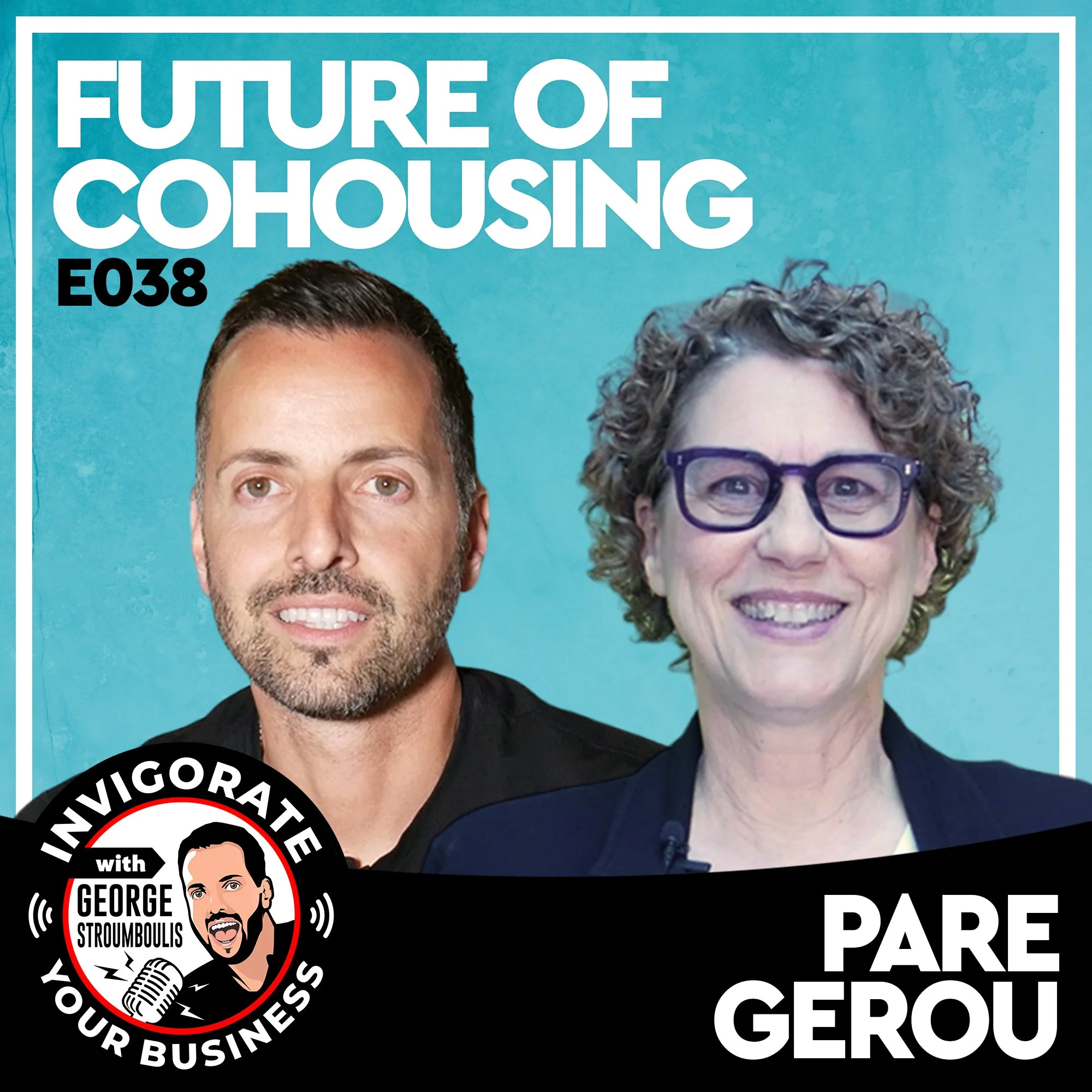
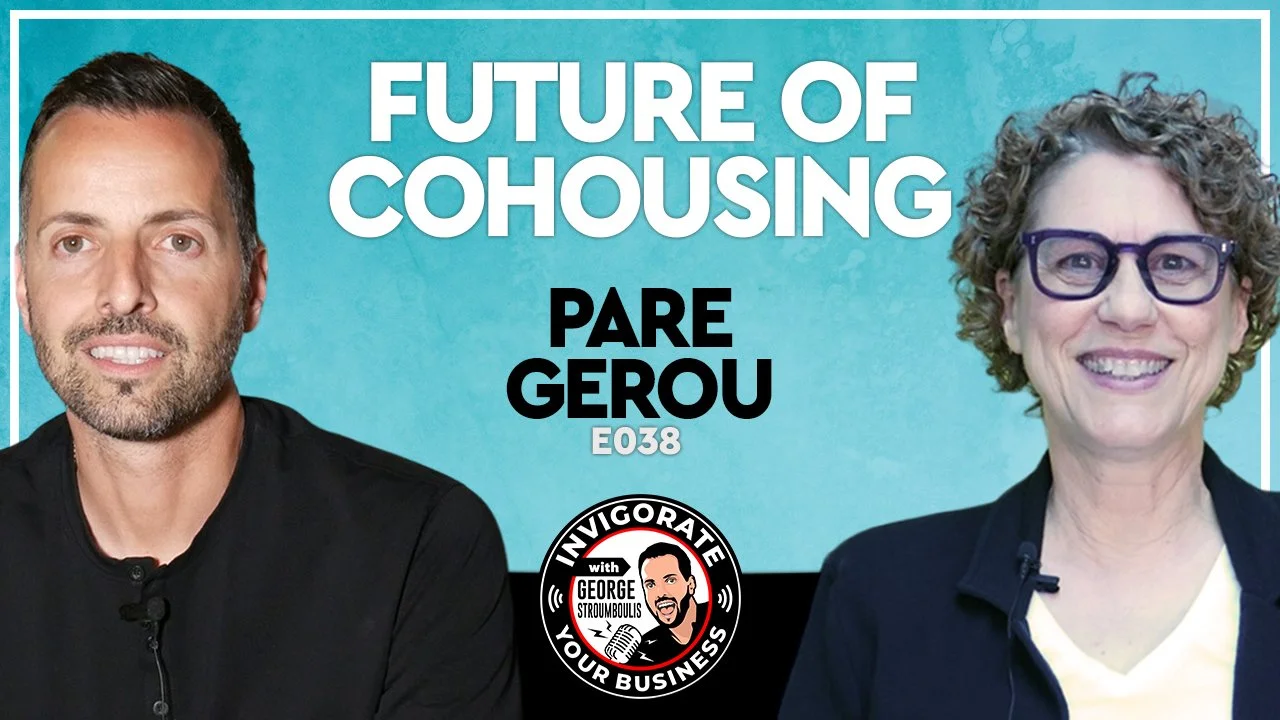
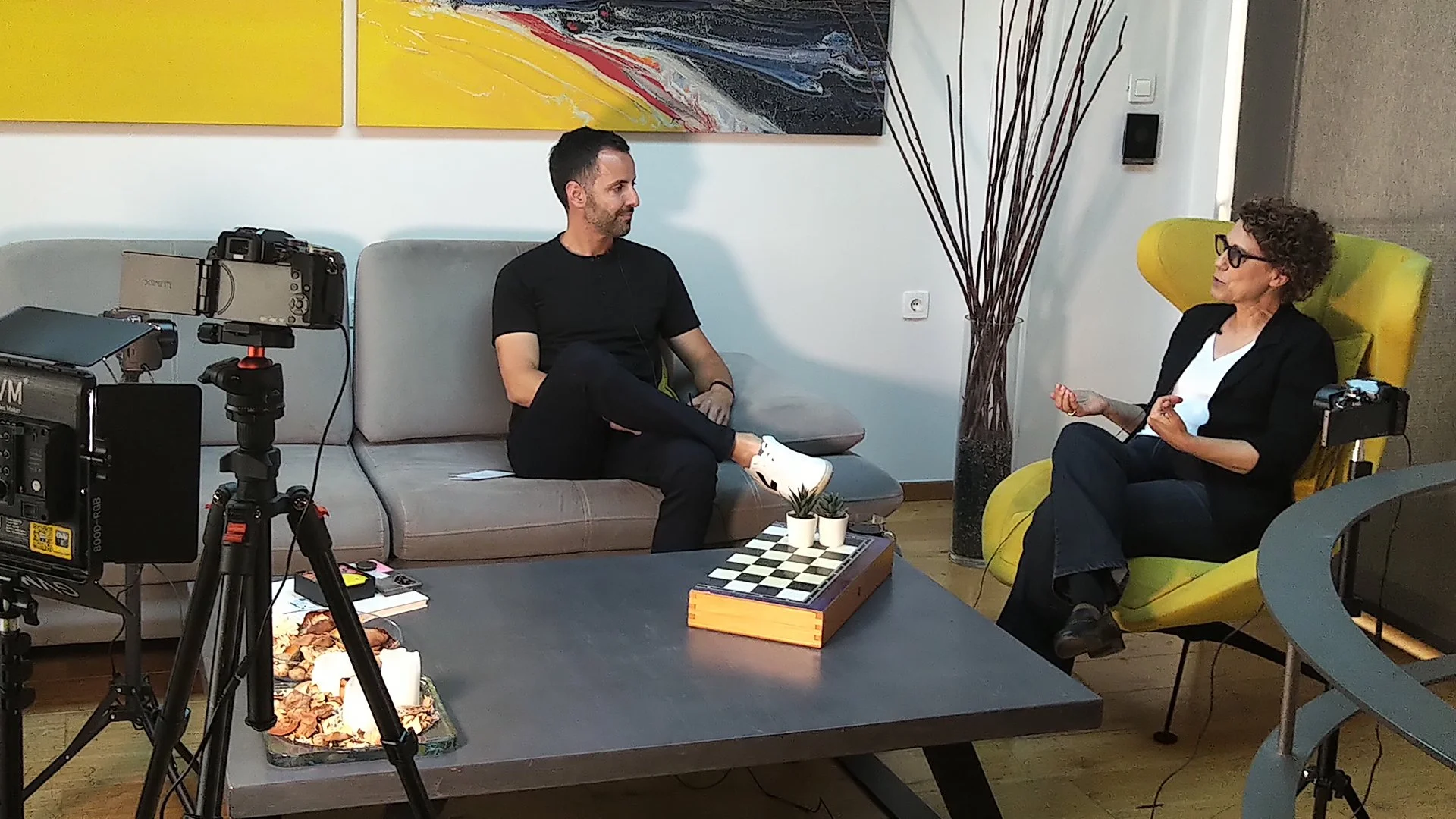
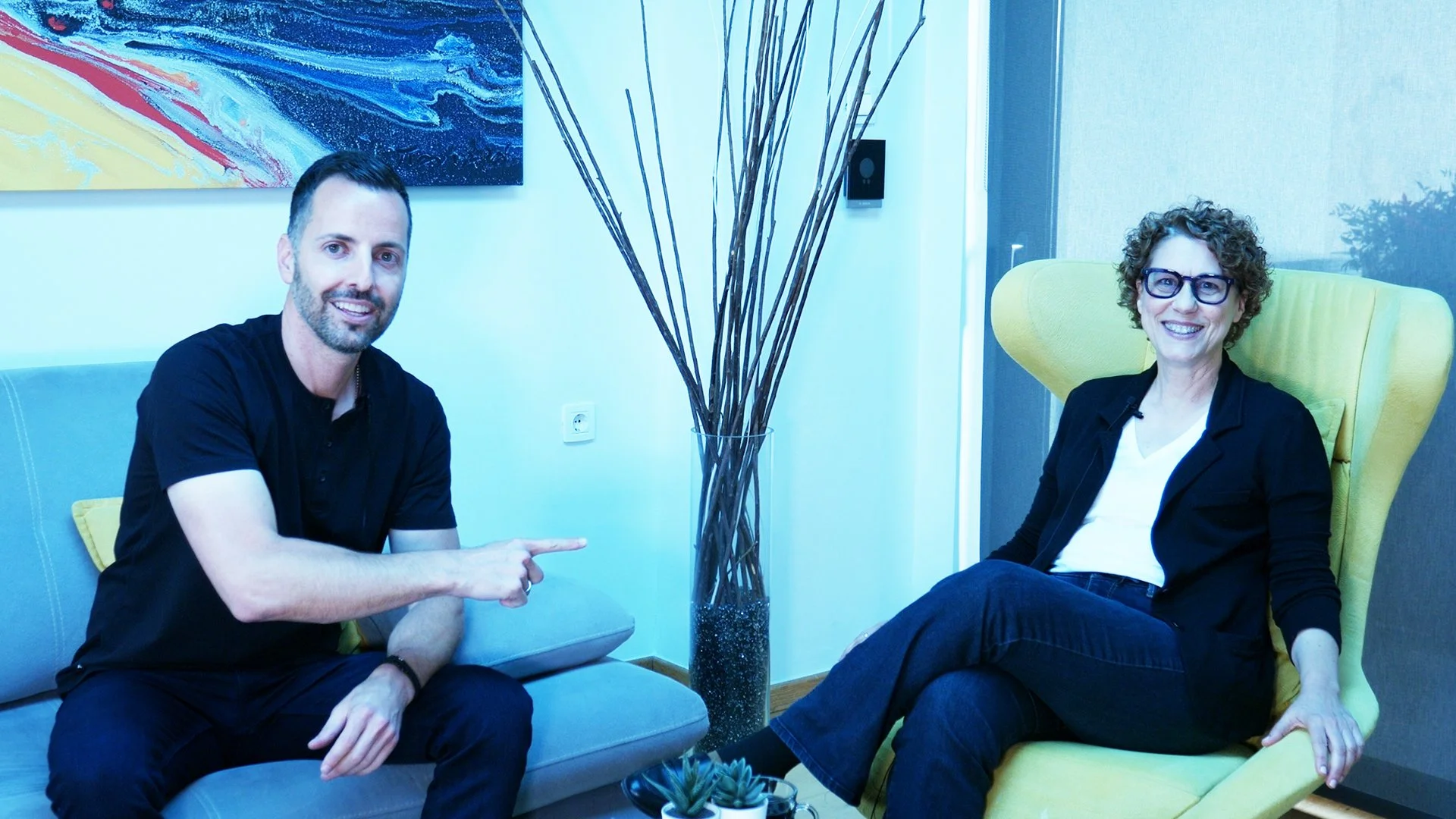
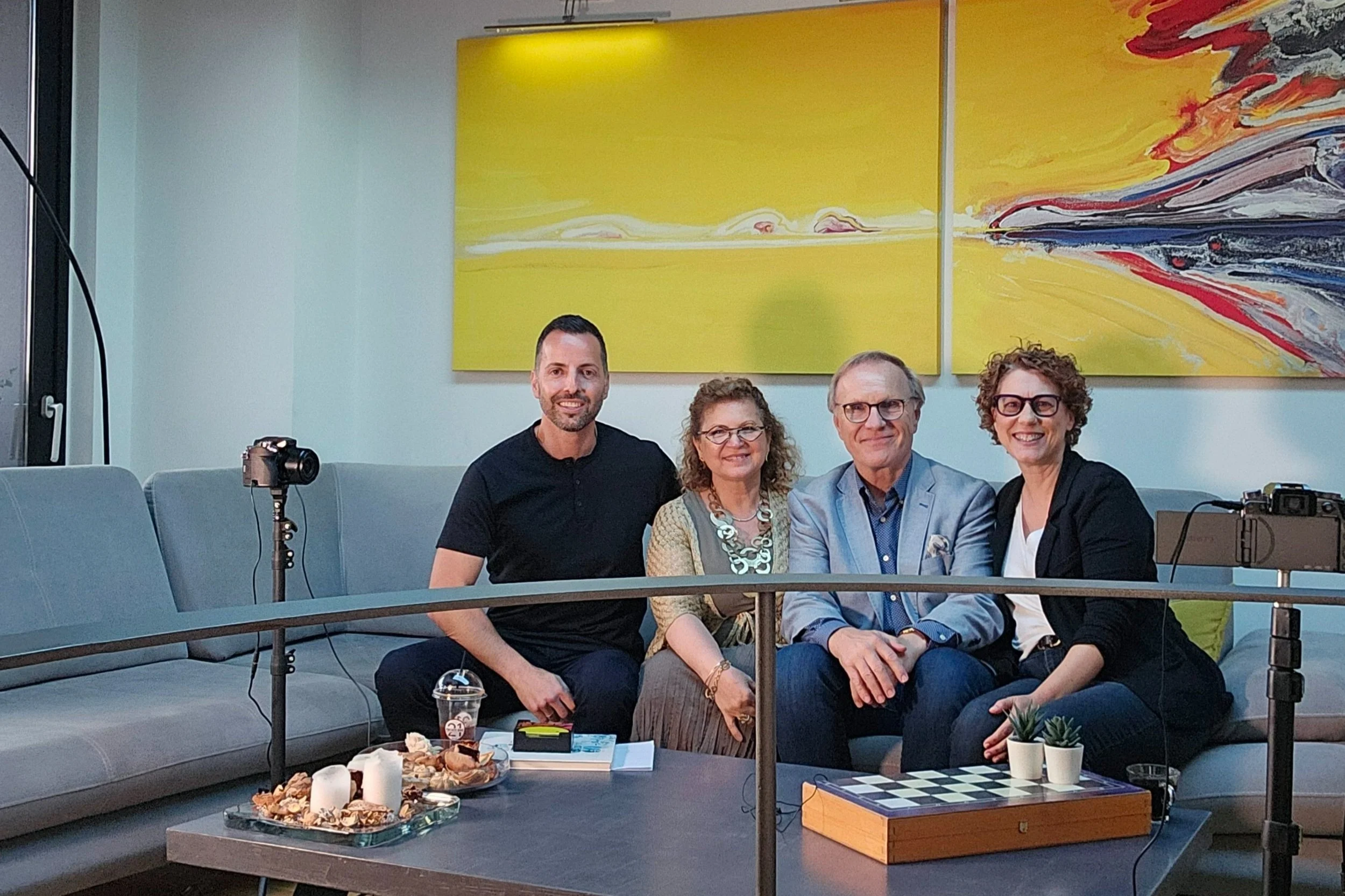
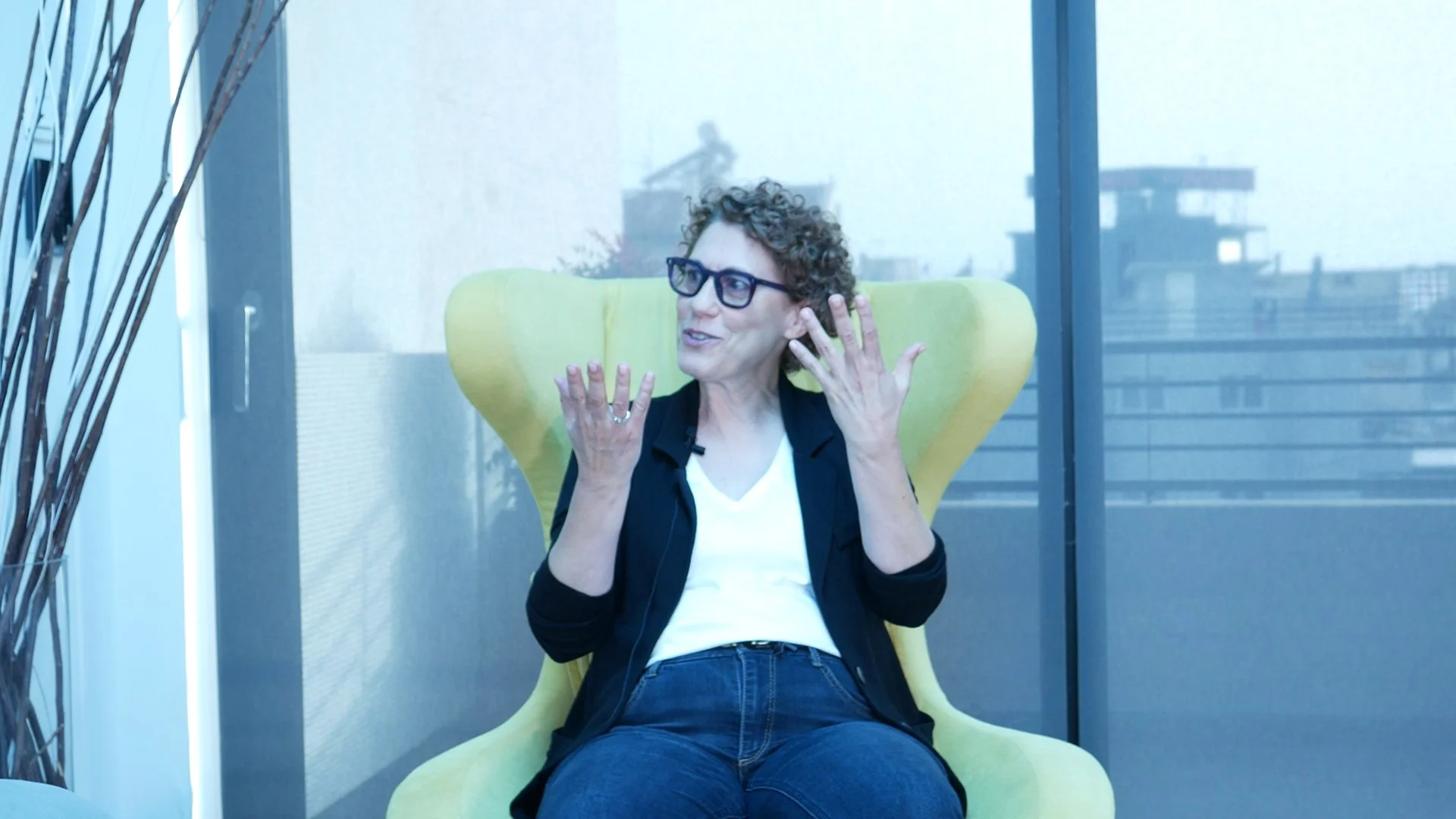
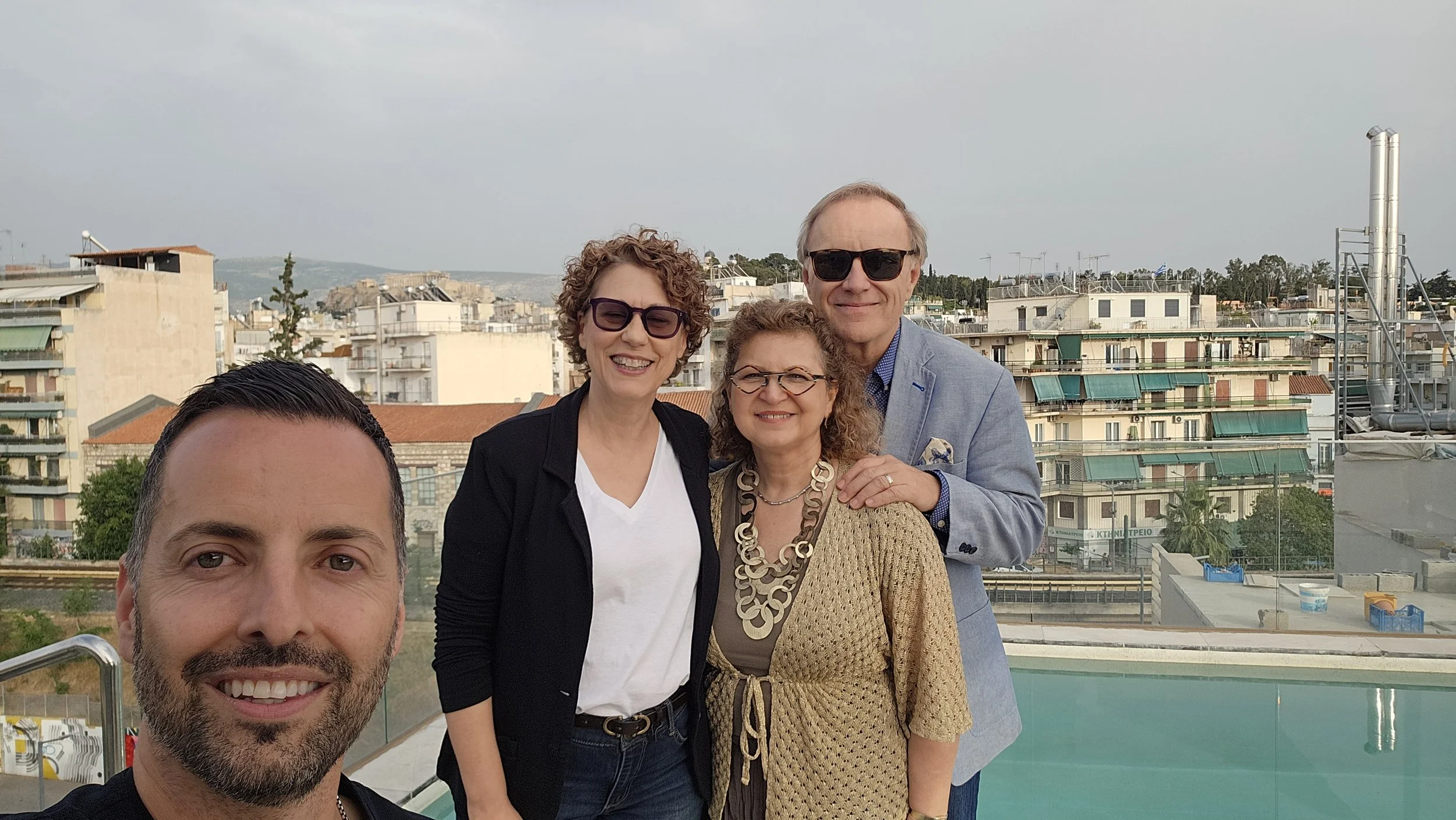
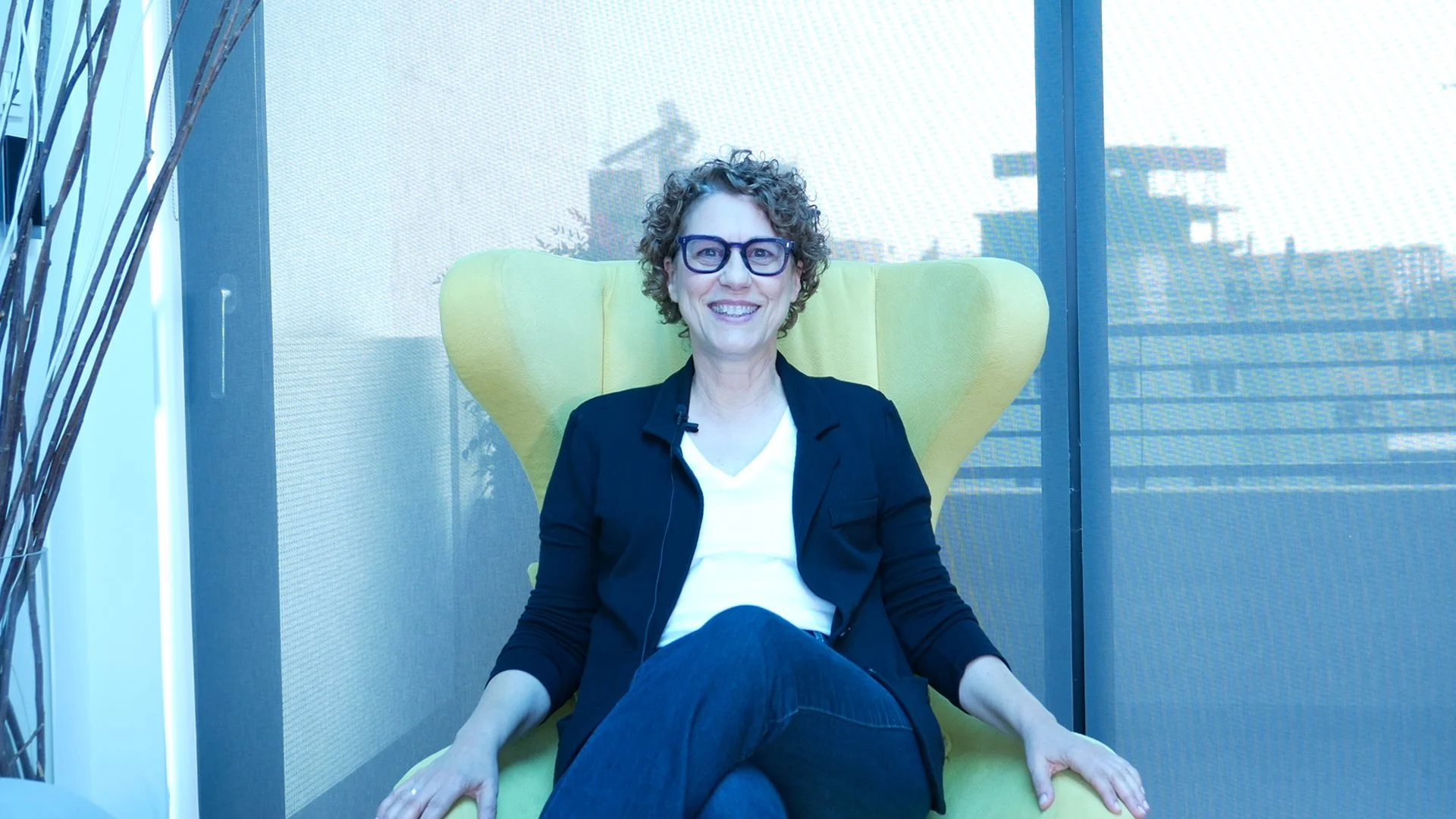
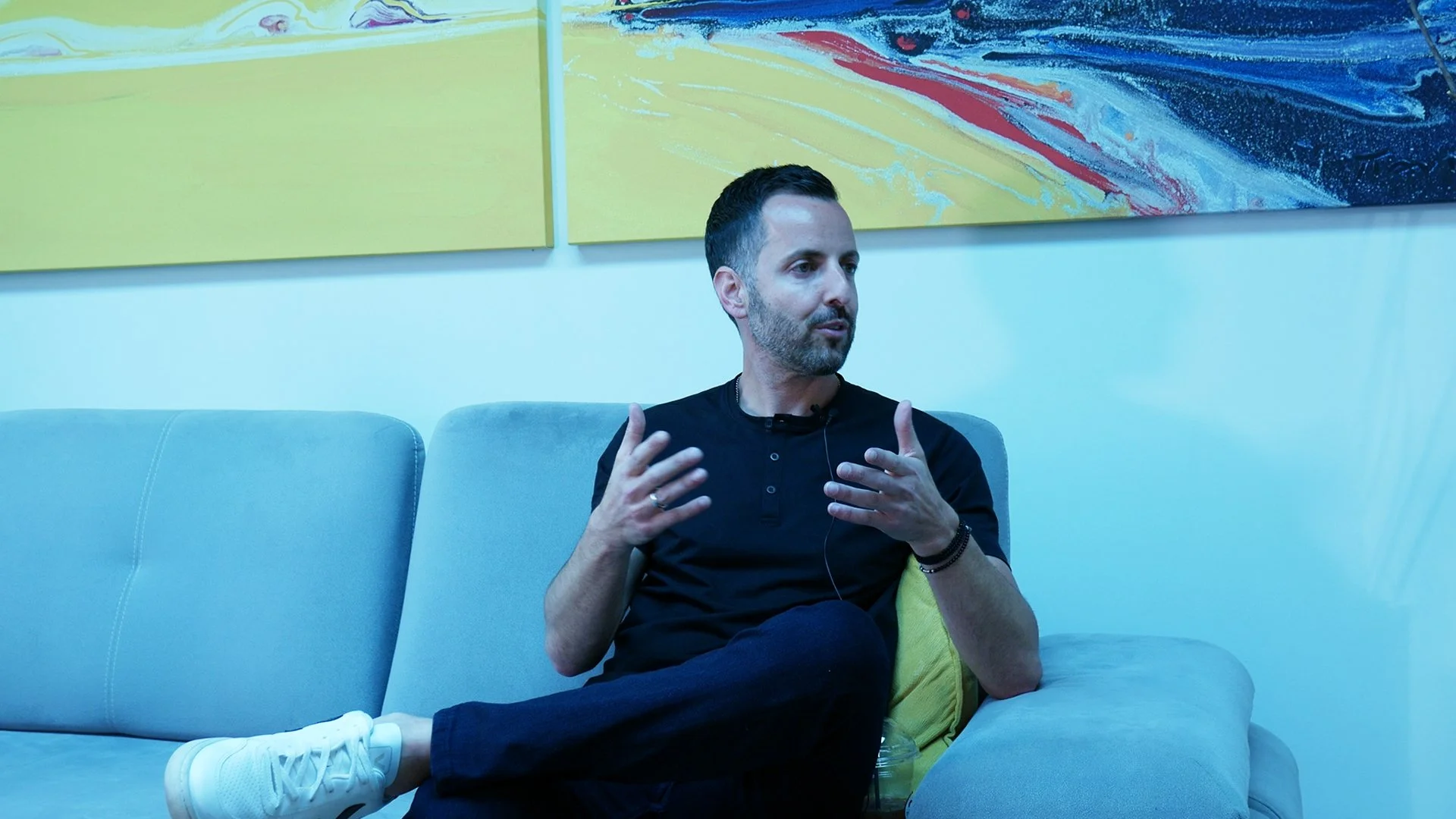

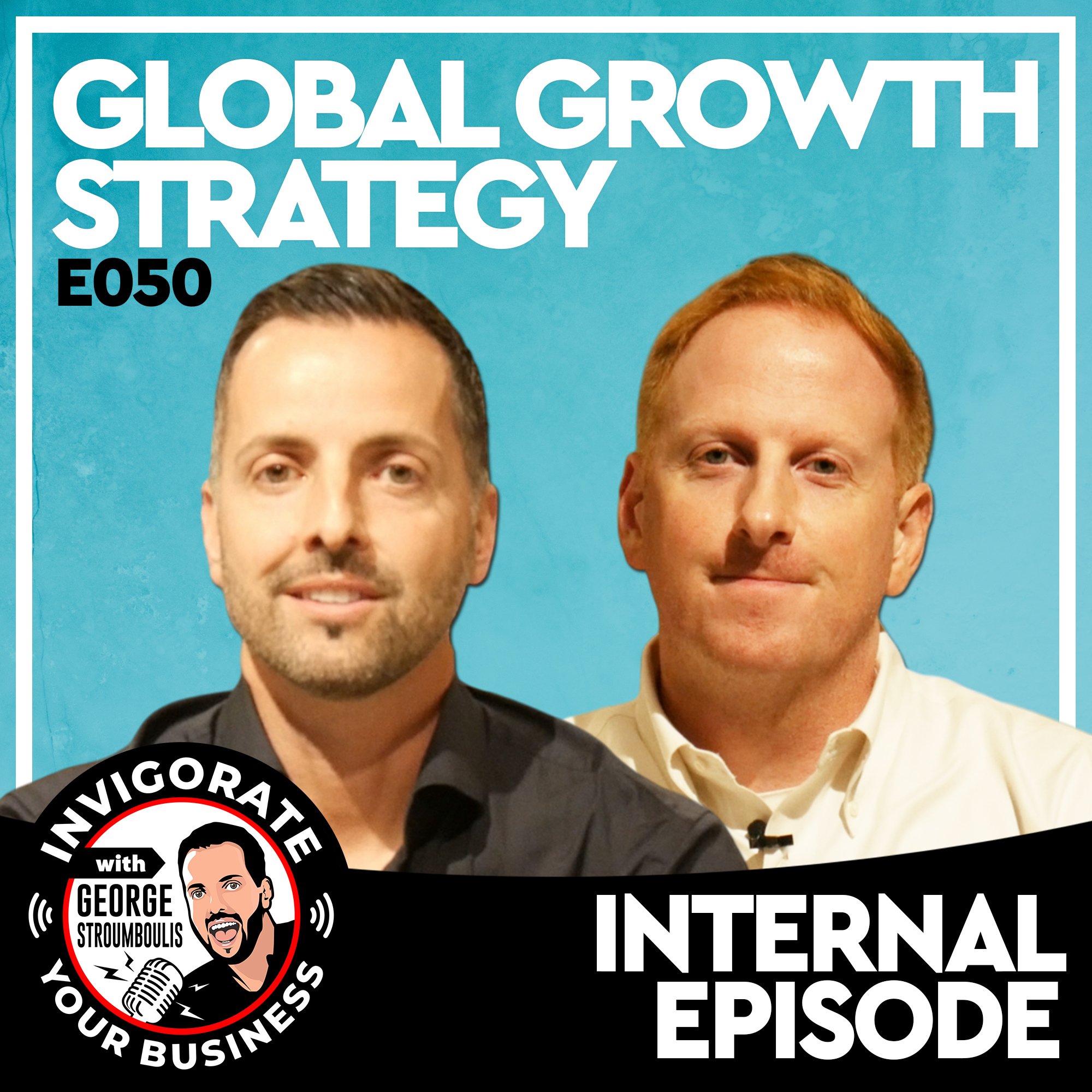



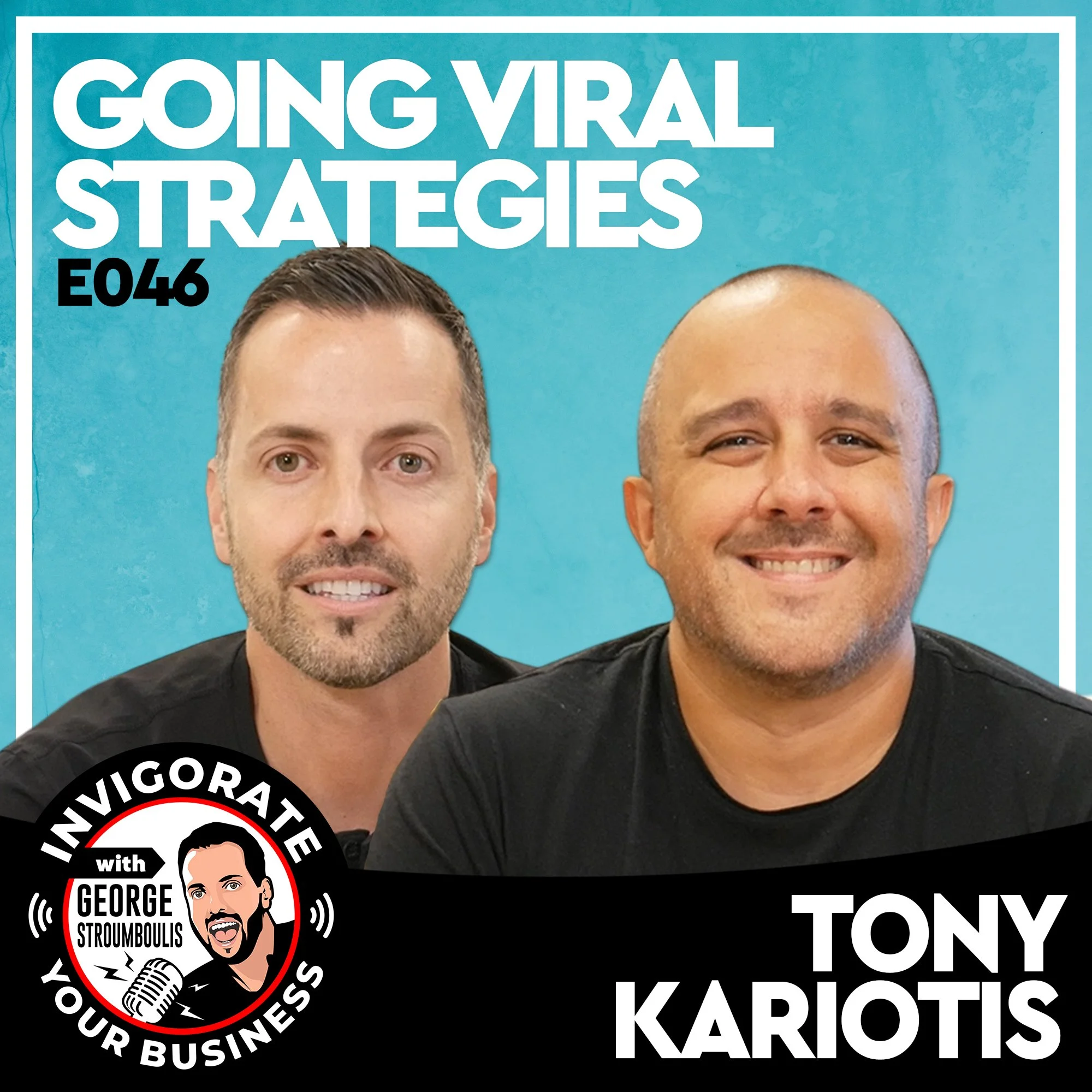

George Stroumboulis sits down with Thanasi Papoulias in Newport Beach, California on the Invigorate Your Business Podcast to talk about all things digital media, social media, influencing, online business strategies, celebrity interactions and so much more.